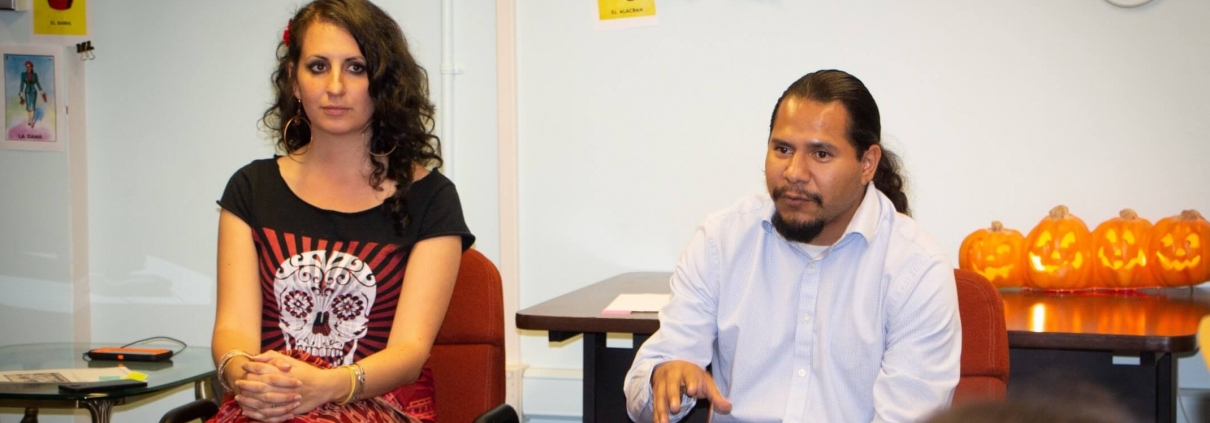 “I want to [see] more respect for the environment and the communities that are living in that environment. People are being taken advantage of. We have to try to change. Going out and canvassing and talking to politicians, that’s a solution.”
“I want to [see] more respect for the environment and the communities that are living in that environment. People are being taken advantage of. We have to try to change. Going out and canvassing and talking to politicians, that’s a solution.”
– Dominique Lemus, Youth Promotora
Colorado’s Latinx community—comprising about 21 percent of the state’s total population—is one of the largest in the nation. Latinxs have historically been underrepresented in politics and too often overlooked, if not unintentionally harmed, by the conservation movement. This historical injustice inspired the development of the Promotorxs program in 2014, which recognizes the importance of Latinx involvement in civic engagement by working with communities to provide the resources, knowledge, and leadership skills needed to create sustainable community solutions.
To date, Protégete has graduated over 150 Promotorxs. We sat down with Promotorxs instructors and students to learn more about how the program helps Colorado’s communities, environment, and our future.
Cultivating Advocacy and Activism Skills in Latinx Communities
Patricia Ferrero and Noe Orgaz facilitate a discussion with Promotores.
Noe Orgaz and Patricia Ferrero are two of Protégete’s youth Promotorxs instructors. Each week, the Protégete organizers meet with about 20 students to discuss the current issues impacting their communities and collaboratively craft solutions.
“Our goal is to get students to talk about environmental issues and to tell their stories effectively,” said Orgaz.
As facilitator, Orgaz’s goal encompasses more than reaching out to the community: it’s about “not only training the young people, but actually getting them to mobilize.”
Helping the students mobilize their communities is especially important, considering the fact that Latinx communities – who suffer disproportionate impacts from pollution – are most often underrepresented in policymaking.
“Many feel disenfranchised because resources aren’t provided in their language or by the history of systemic marginalization,” said Ferrero. She explained that “having a program that is intentionally centered around the cultural aspects of the community ensures that community members feel confident and welcome in traditionally unwelcoming spaces.”
Tying the Health of our Environment to the Health or Our Families

Alexsandra Ruiz-Ortiz
When asked why they decided to get involved with Protégete, current Promotorxs listed their families as their primary concern.
“Conservation means preserving and maintaining what’s most important to you. And that’s family,” said Alexsandra Ruiz-Ortiz. “Air quality is an environmental issue that is really important to me. My nephew and I have asthma because of the bad air quality. Before I do any exercise…I have to take my inhaler. For my nephew, when he gets tickled for a long time, he starts wheezing.”
Latinxs suffer from asthma — which is worsened by air pollution — at much higher rates than people from other demographic groups. A Latinx child is 40 percent more likely to die from asthma than non-Latinx white children.
At the same time, 66 percent of Latinxs in the U.S. live in areas that

Jordi Hernandez
fall below EPA’s air quality standards.
Jordi Hernandez added, “Whether people realize it or not, they’re going to be breathing [polluted air] and it’s going to cause some health disruptions. We need to learn how to do something about the issues that we care about. Promotorxs is helping us do that.”
Elevating Latinx Voices
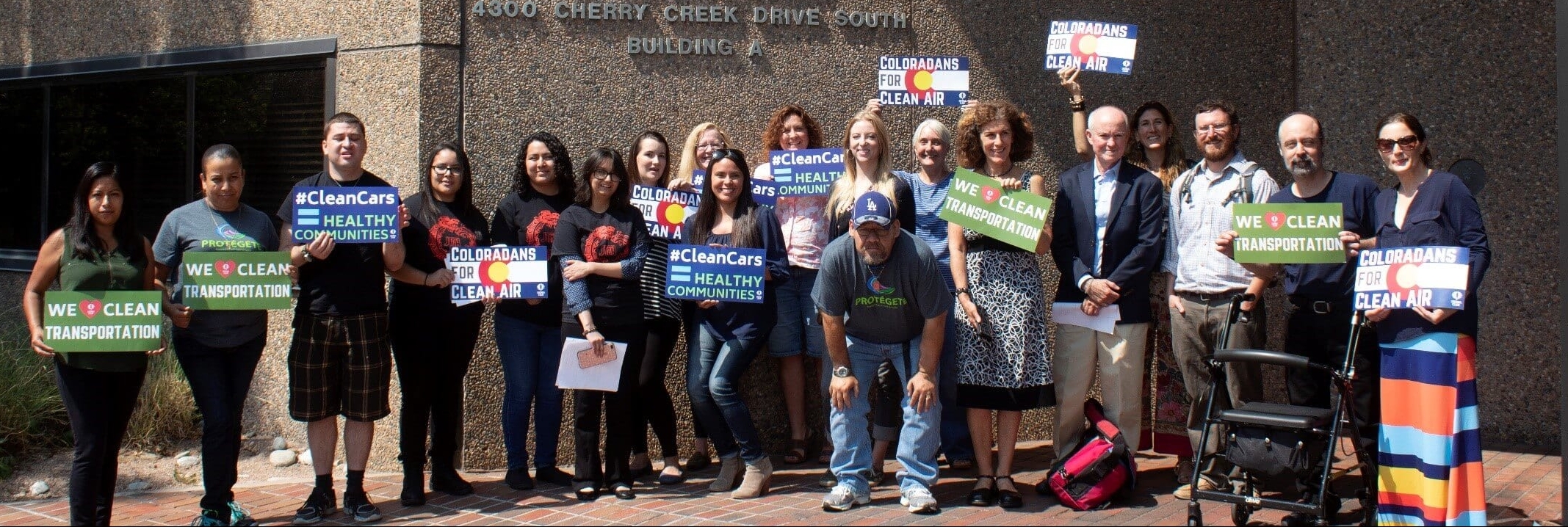
Promotorxs testify in support of clean car standards
Along with becoming informed about local environmental justice issues, Promotorxs supports students in becoming the next generation of leaders.
“[Promotorxs] allows a person to be active.” said Orgaz. “These are people who can continuously talk to the media about issues that they’re facing, that can continuously educate others. Then when [their community needs them] to come out to testify or take an action, they’ll be ready.”
By giving students a platform, hands-on experience, and the resources to succeed, the Promotorxs program helps to elevate Latinx voices. Through these opportunities–be it testifying at the Air Quality Control Commission on behalf of clean car rules or knocking doors for pro-conservation leaders–Promotorxs prepares its students to become influential community advocates.
“Seeing how motivated and excited [our Promotorxs] were about [testifying] made me really proud of how much students and Latinxs can get done when they’re given the opportunity,” said Ferrero.

Elva Parga, Youth Promotora
Elva Parga shared that the Promotorxs program helped her find a way to help her broader community. “I’ve always helped a little here and there, but I’ve never been this involved,” she said. “I’ve always been the person to [watch others] and cheer them on, but now I’m the one sitting at the microphone speaking to representatives, telling them what I want them to do. That’s something that I didn’t think I would ever do.”
Looking to the Future
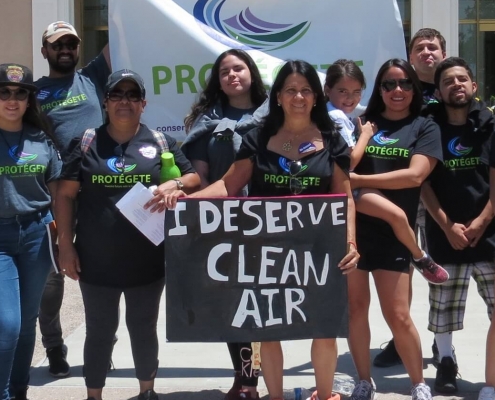
Promotorxs advocate for clean buses at a rally in New Mexico
Though still relatively new, the Promotorxs program is continuing to evolve in its capacity and potential.
“We still don’t know the full potential of this program. It’s definitely always growing and we’re going to continue to expand,” said Orgaz. “My vision for Promotorxs is that once a person has graduated, they’re the ones teaching the class.”
“We can start with Promotorxs at a high school and end up helping someone get elected as a city council member or work at the state Capitol and realize the [full] potential that they have,” said Ferrero. She aims to give those opportunities “because a lot of students don’t realize that’s something that they can achieve.”
Students agree. Concluded Parga,“I feel like [Protégete’s Promotorxs program] is preparing me to fight bigger battles in the future.”

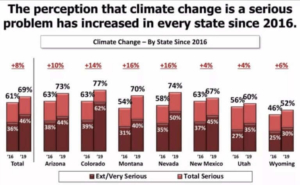 This shift is drastic. Where did it come from? Its roots may be found in the impacts of the climate crisis unfolding in our communities.
This shift is drastic. Where did it come from? Its roots may be found in the impacts of the climate crisis unfolding in our communities.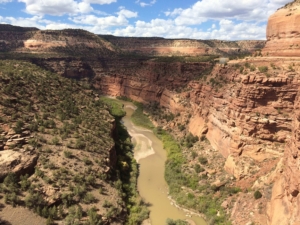 Colorado just had its second-driest summer on record.
Colorado just had its second-driest summer on record. 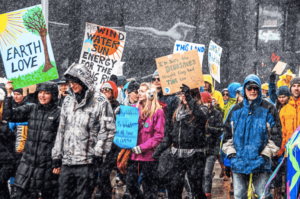
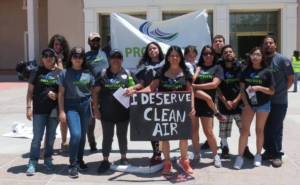 Taking bold action to protect our climate. A recent report from the United Nations found we have 12 years to act to prevent disastrous climate change. Colorado can lead the nation toward a clean energy economy.
Taking bold action to protect our climate. A recent report from the United Nations found we have 12 years to act to prevent disastrous climate change. Colorado can lead the nation toward a clean energy economy. 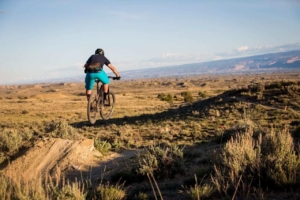
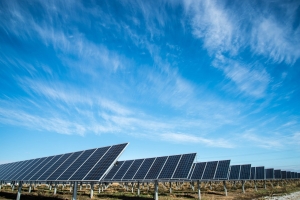

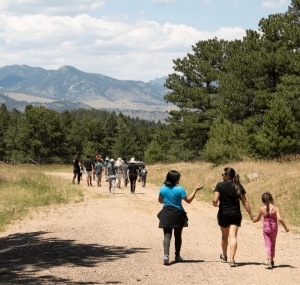
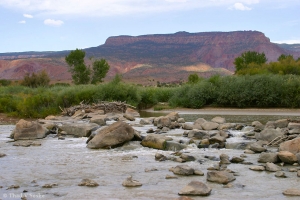
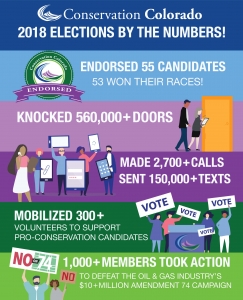
 “I want to [see] more respect for the environment and the communities that are living in that environment. People are being taken advantage of. We have to try to change. Going out and canvassing and talking to politicians, that’s a solution.”
“I want to [see] more respect for the environment and the communities that are living in that environment. People are being taken advantage of. We have to try to change. Going out and canvassing and talking to politicians, that’s a solution.”